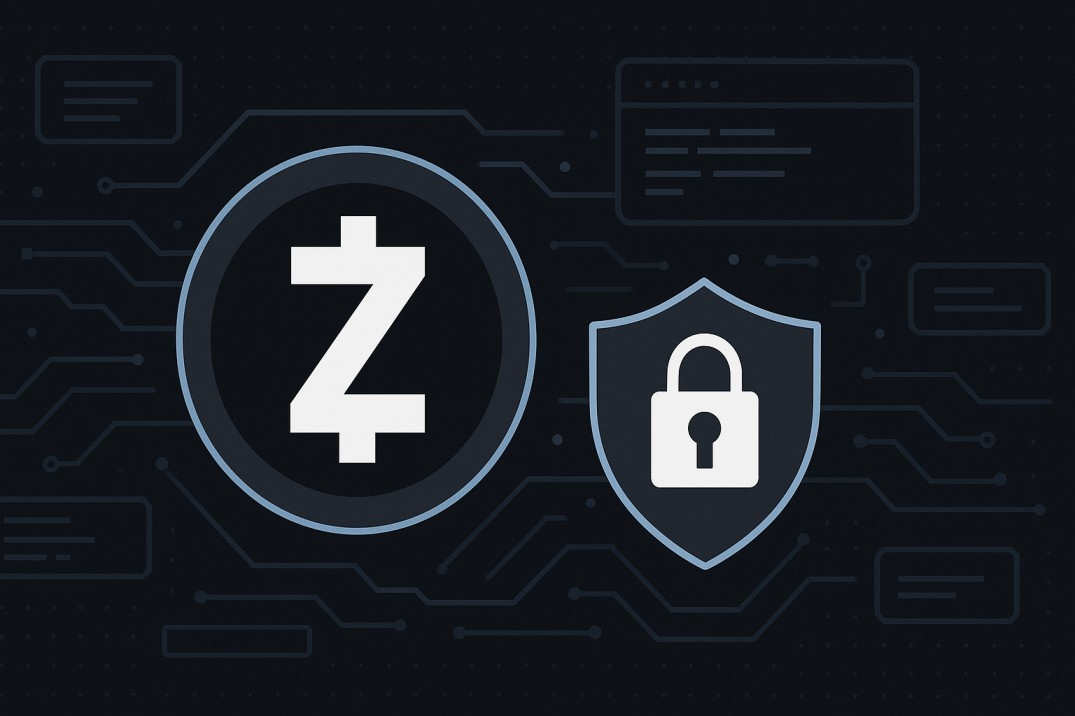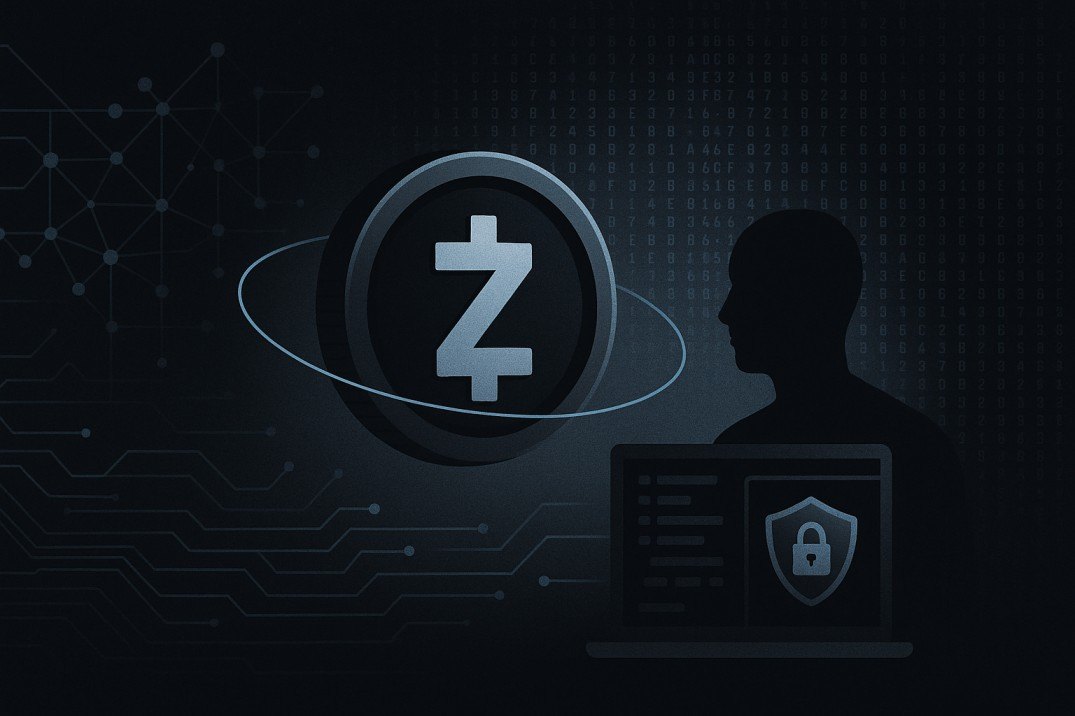In the evolving landscape of cryptocurrencies, privacy remains a paramount concern for many users. While Bitcoin and Ethereum offer pseudonymity, they don't provide true anonymity. Enter Zcash (ZEC), a cryptocurrency that prioritizes user privacy through advanced cryptographic techniques.
TL;DR: Key Takeaways
- Privacy by Design: Zcash utilizes zk-SNARKs to enable shielded transactions, ensuring sender, receiver, and transaction amounts remain confidential.
- Dual Transaction Types: Users can choose between transparent (T-address) and shielded (Z-address) transactions based on their privacy needs.
- Emission Schedule: Zcash has a fixed supply cap of 21 million coins, with block rewards halving approximately every four years, similar to Bitcoin.
- Mining Mechanism: Currently, Zcash employs a Proof-of-Work (PoW) consensus algorithm, utilizing the Equihash algorithm.
- Governance: Development is overseen by the Electric Coin Company (ECC) and the Zcash Foundation, with community input playing a significant role.
- Adoption Challenges: Despite its advanced privacy features, Zcash faces hurdles in widespread adoption due to regulatory scrutiny and user awareness.
Launched on October 28, 2016, Zcash is a decentralized cryptocurrency that offers enhanced privacy features compared to traditional cryptocurrencies like Bitcoin. Built upon Bitcoin's codebase, Zcash introduces zk-SNARKs (Zero-Knowledge Succinct Non-Interactive Arguments of Knowledge) to provide optional transaction privacy.
Unlike Bitcoin, where transaction details are transparent and can be traced, Zcash allows users to conduct transactions without revealing sensitive information, ensuring financial privacy.
The Innovation: zk-SNARKs & Transaction Types

At the core of Zcash's privacy feature is zk-SNARKs, a form of zero-knowledge proof. This cryptographic method enables one party to prove to another that a statement is true without revealing any specific details about the statement itself. In the context of Zcash, zk-SNARKs allow for the verification of transactions without exposing the sender, receiver, or transaction amount .
This technology ensures that while the transaction is recorded on the blockchain, the details remain confidential, offering a level of privacy not typically found in other cryptocurrencies.
Transaction Types: Transparent vs. Shielded
Zcash offers two types of addresses:
- Transparent Addresses (T-addresses): Function similarly to Bitcoin addresses. Transactions are publicly visible on the blockchain.
- Shielded Addresses (Z-addresses): Utilize zk-SNARKs to encrypt transaction details, ensuring privacy.
Users can choose between these address types based on their privacy preferences. However, for the shielded transactions to be effective, a significant portion of the network must adopt them; otherwise, the privacy benefits diminish .
Tokenomics: Supply and Emission
Zcash has a fixed total supply cap of 21 million coins, mirroring Bitcoin's supply model. The emission schedule includes halving events approximately every four years, reducing the block reward given to miners.
Initially, 80% of the block rewards were allocated to miners, while 20% was directed to the development fund. This model, known as the "Founders' Reward," was designed to fund the ongoing development and promotion of the Zcash network.
However, this allocation has been a topic of debate within the community, with some advocating for a reduction in the development fund's share to increase miner incentives.
Governance & Mining: Proof-of-Work with Equihash
Zcash employs a Proof-of-Work (PoW) consensus mechanism, similar to Bitcoin, to secure its network. However, instead of Bitcoin's SHA-256 algorithm, Zcash uses the Equihash algorithm, which is memory-hard and designed to be ASIC-resistant.
This choice aims to democratize mining by allowing more participants, especially those with consumer-grade hardware, to contribute to the network's security.
Governance: ECC and the Zcash Foundation
The development and evolution of Zcash are overseen by two primary entities:
- Electric Coin Company (ECC): Responsible for the core development and maintenance of the Zcash protocol.
- Zcash Foundation: Focuses on community engagement, education, and ensuring the long-term sustainability of the Zcash ecosystem.
Both organizations work collaboratively, with input from the broader community, to guide the future direction of Zcash.
Adoption and Use Cases

Zcash's emphasis on privacy makes it suitable for various applications, including:
- Peer-to-Peer Payments: Enabling individuals to send money without exposing transaction details.
- Donations: Allowing donors to contribute without revealing their identities.
- Remittances: Facilitating cross-border transfers with enhanced privacy.
- Privacy Layers for DeFi: Integrating privacy features into decentralized finance applications.
Despite these use cases, Zcash faces challenges in adoption due to regulatory scrutiny and competition from other privacy-focused cryptocurrencies like Monero .
Challenges and Risks
While Zcash offers advanced privacy features, it faces several challenges:
- Regulatory Concerns: Privacy coins are under increasing scrutiny by regulators worldwide, which could impact Zcash's adoption and use.
- User Awareness: Many users are unaware of the privacy features Zcash offers, leading to underutilization of shielded transactions.
- Network Effects: For shielded transactions to be effective, a significant portion of the network must adopt them. Low adoption can compromise privacy benefits .
Future Outlook
Zcash continues to evolve, with ongoing developments aimed at enhancing its privacy features and increasing adoption. Future upgrades focus on improving scalability, reducing transaction costs, and fostering greater adoption of shielded transactions.
As privacy becomes an increasingly important concern in the digital age, Zcash's commitment to user confidentiality positions it as a significant player in the cryptocurrency space.
Final Thought
Zcash remains one of the most important experiments in privacy-preserving money. Its use of zero-knowledge proofs set a technical standard that many newer privacy projects have followed, and it continues to be one of the few major blockchains offering users a choice between public and shielded transactions.
Whether ZEC becomes widely used for private payments or stays a niche tool for those who value financial anonymity, its impact on cryptography and blockchain design is undeniable. Zcash proves that privacy isn't just a feature - it's a statement about what the future of money could look like.
ALSO READ: COTI V2 Use Cases: Setting a New Benchmark for Blockchain Privacy











